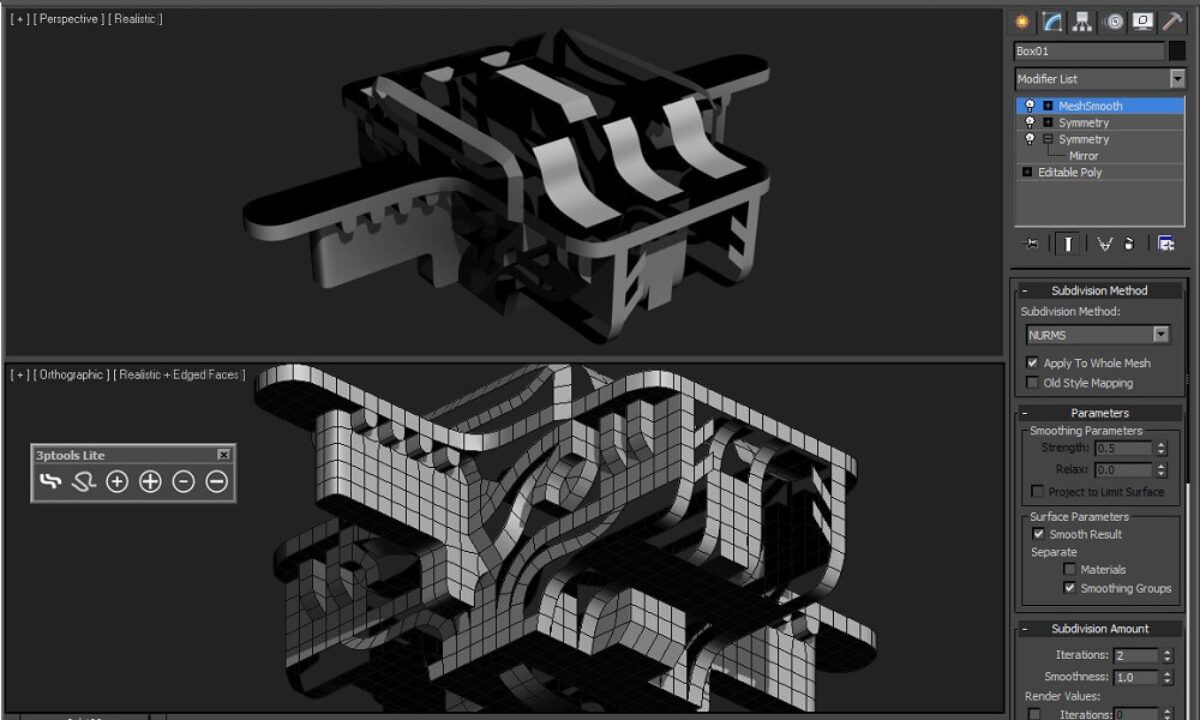Using 3D modeling and rendering, the marketing team can up the game and increase conversion rates.
Marketing plays a key role in ensuring that you provide clients with the best version of your services. It is a trial and error process, wherein you invest in different marketing tactics till you crack the code.

With COVID-19 disrupting conventional business models, a paradigm shift has come about in developing marketing strategies. Compared to 2016, the number of images an average person now expects to surf before making a purchase decision online has increased from 3 to 8 images per product.
In this case, a disruptive tool is required to fulfill consumer expectations and provide an immersive experience to help them in the decision making process.
So how do you ensure that your marketing strategy nails the execution and keeps consumers invested in your business?
The answer lies in 3D modeling and rendering. Due to its visual impact and immense scope for customisations, 3D modeling and rendering is becoming the preferred language for communicating with consumers.
Over the past 5 years, its utilization and effectiveness have grown manifold.
According to data from Shopify, interactions with 3D/AR powered products had a 94% higher conversion rate than regular alternatives.
But before we dive into the benefits of 3D Rendering in marketing, let’s get ourselves some basic understanding of how 3D modeling and rendering services work.
Why 3D modeling and rendering?
3D modeling
3D modeling is the craft of using specialized computer software to create three-dimensional representations of an object or a surface. From video games to architecture, 3D modeling is an extremely important addition to modern businesses, helping creators make photo-realistic models for clients.

3D Rendering
3D rendering is the process of converting these 3D computer models into three-dimensional images. Once a model is complete, it can be rendered, or changed into an image using rendering software like 3ds Max, TinkerCAD, Sketchup, SelfCAD etc.
The rendering software takes data from a three-dimensional model and creates a three-dimensional image. While producing accurate and photorealistic 3D models, this software calculates light, color, shadows, and texture.
With 3D modeling services, a lot may be accomplished. To demonstrate this, we've listed a few of the most significant advantages of employing 3D modeling and rendering for ad campaigns, interactive product catalogs, 3D fashion models, and more.

Does your Marketing Strategy need 3D modeling and rendering?
Now that we've covered the basics of 3D product modeling and rendering, let's look at some of the reasons why we should employ 3D product visualization services in our marketing plans.
There is no doubt that brick and mortar stores are losing their sheen and consumers are gravitating towards convenience and efficiency. From a practical standpoint, photorealistic models promise users an immersive and user-friendly experience to shop from the comfort of their homes.
The models are immaculate, with no glare, inconsistencies, or manufacturing flaws to hamper the consumer purchasing experience.
Here are some benefits of adopting 3D modeling in your marketing strategy:
- Versatility and flexibility
- Works in your Budget
- Precision
- Engagement
- Boosts brand image
Versatility and flexibility:
3D modeling and rendering lets you make all your product visualizations a reality without the hassle of conducting various photoshoots. It also permits indefinite modifications at the design stage.
Product packaging, newspaper advertisements, trade exhibitions, and billboards, 3D product rendering is a sensible and evergreen investment to market your business in a unique and interactive format.
Budget-and environment-friendly:
Conventional photographs for your product website demand immense planning for photoshoots. This cumbersome exercise must be performed for each product, shooting up costs and demanding time. In contrast to traditional building-scrapping photosets, 3D configurators can be cost-effective, zero-waste alternatives that produce better results in half the time.
Delivers precise and perfect assets every time:
3D modeling and rendering give you complete control over every aspect of your images. You can adjust every minute detail, without compromising on the photorealistic quality. This not only uplifts your website but also assures quality and competence for your clients.
Engages the audience with interactive content:
By settling for boring elevator pitch presentations and static, monotonous images, you can risk doing a grave disservice to your business.
90 percent of the information transmitted to the brain is visual. So engage your consumers with some realistic images to boost comprehension and retention. 3D modeling and rendering helps integrate interactive graphics in a flexible and cost-effective way. According to Apple, consumers are 11 times more likely to buy furniture if they can see it in their home environment using 3D and AR.
Enhances your brand image:
Is your website suffering from a high bounce rate? Do your products fail to attract buyers, even though their quality is top notch?
Building a strong connection with your audience and establishing your brand while competing with others requires time and work. One of the most effective methods to express an idea that represents your company is to combine your brand identity with stunning and eye-catchy images. Ikea’s sales increased by 43% when they began allowing users to virtually place true-to-scale 3D models in their homes before purchasing.
3D modeling and rendering can assist you in creating breathtaking visuals or animations that will resonate and stay in the minds of your viewers.
Switching to 3D modeling and rendering
With its various and timeless properties, 3D modeling and rendering extends far beyond the boundaries of traditional photography. It allows you complete control over your digital assets in every way. The 3D items will help you make a lasting impression on your audience while also preparing you for the future.






